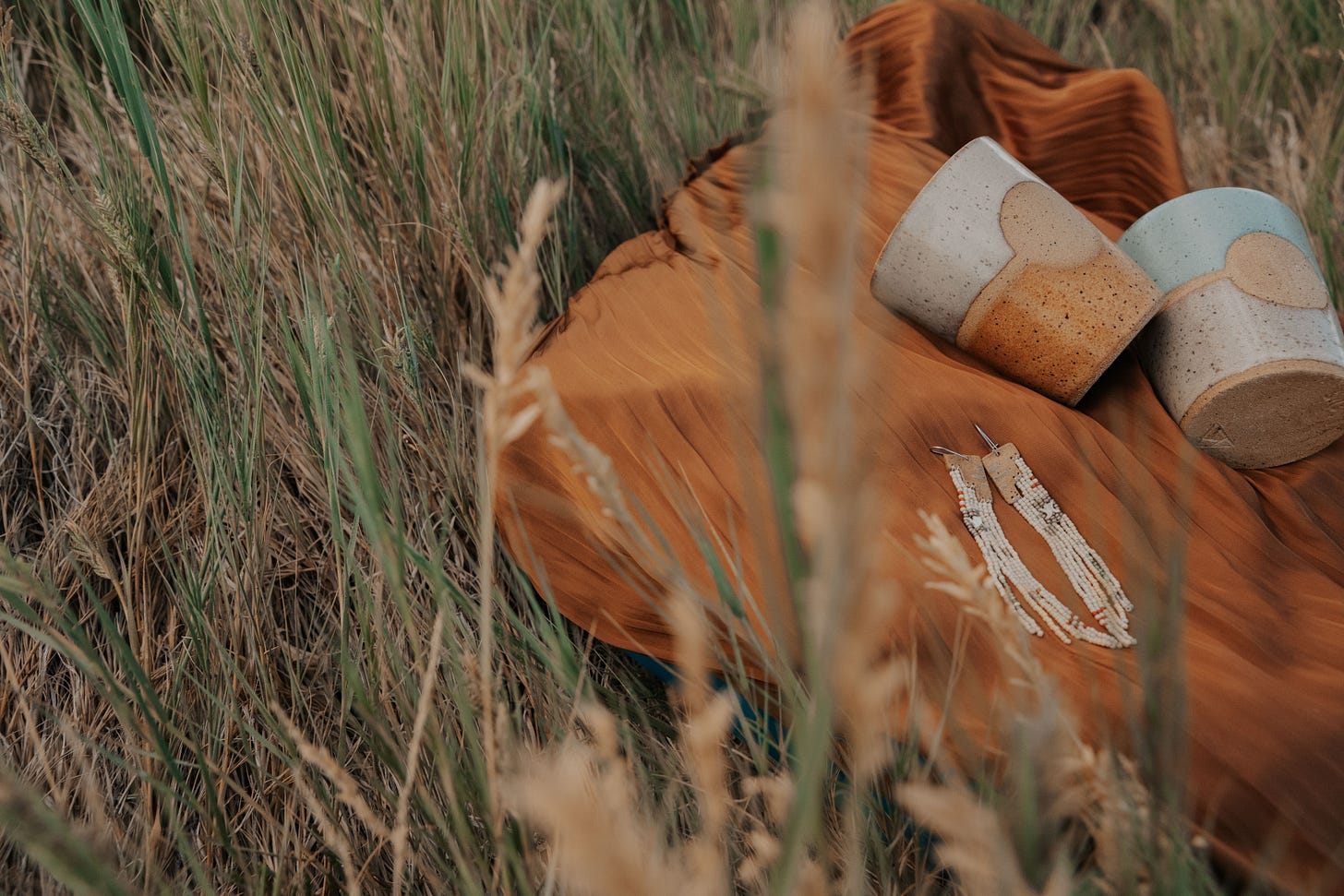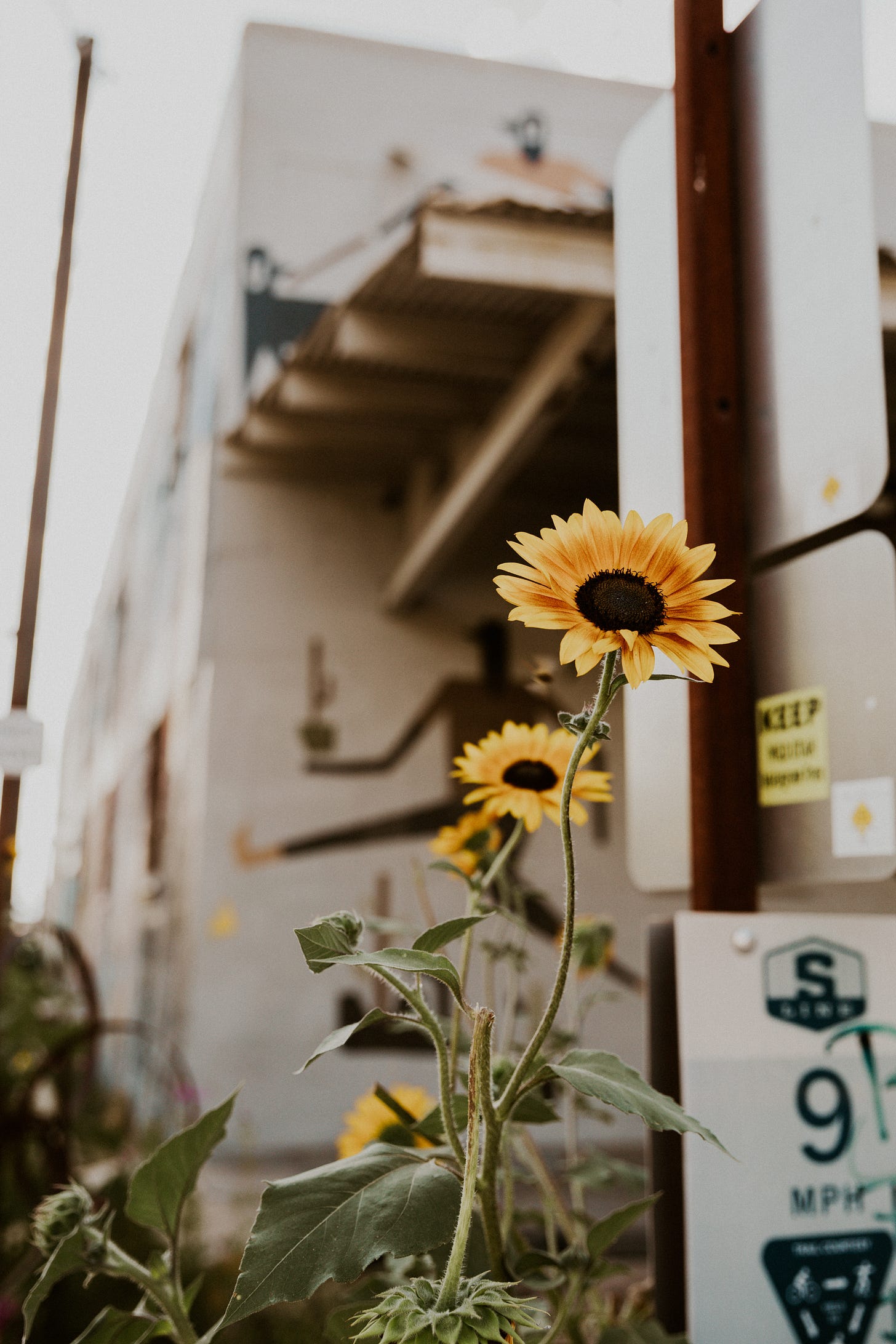
I have come to expect intense episodes of anxiety and self-doubt shortly after celebrating a wonderful step forward in my career or creative development. After receiving news of my acceptance into an artist residency program late January, the month of February has been a tumultuous period of stretching myself to new heights, followed by a sense of shrinking back and nursing pulled muscles. The emotional extension and contraction leaves me feeling raw and fragile. Even so, there is a funny irony within my current position that I am observing at this moment in my life: imposter syndrome is both more intense and more familiar than ever before. What a brave act of resistance it is, for me to call it by name, and share with you how I have learned to move through it, even as it currently haunts me every night when I lay down.
“Imposter Syndrome” was officially coined as a term in 1979 by psychologists Pauline Rose Clance and Suzanne Imes who spent years studying women in high achieving positions and found commonalities in a personal sense of self-doubt and a belief that their accomplishments were due to chance rather than skill, talent, and effort.
Of course we know that this feeling can manifest for all people in many ways. However, it is important to note that this phenomenon is more common for those who have been traditionally devalued by our society that measures success through a limited, capitalistic lens. Capitalism is inseparable from the patriarchal, white supremacist ideology deeply rooted in American history, regardless of whether or not teachers are allowed to teach about it. Because of this structure, it is important to acknowledge that people in the margins of this ideology such as BIPOC, the Queer Community, women, and those choosing to pursue nontraditional careers in the creative sector, can be more susceptible to this feeling due to evaluation errors in our societal design.
I am writing to you as an expert on this topic. Not because I have transcended imposter syndrome, but because I have let it hold me back most of my life. I want to write in depth about various elements of creativity, not because of my success, but because of my failures. I have struggled through many aspects of my creative journey. I am bursting with the reflections I have collected through years of hesitation and observation. My self-proclaimed expertise comes from the phases I felt halted by this specific kind of insecurity, and the will to move through it. I want to share the ways in which I have learned to keep showing up, even when the self-doubt that follows growth feels all-consuming.
Awareness is powerful. When I remind myself that imposter syndrome is rooted in ego and elitism, it often releases a physical tension I did not realize I held. My face softens, my shoulders lower, and clarity replaces anxiety. I do not want to uphold the systems of oppression that imposter syndrome relies on for existence. I do not want to play a role in gate-keeping or posturing a lifestyle to sell my work. I do not want to perpetuate the same elitist culture that I may remain in an eternal practice of healing from. If I remind myself I am not making work for external validation and so external measures of merit do not apply to me, then what I am I making work for?
Sit with this question. It may just be one of the most meaningful and guiding companions in this life. Why do we return again and again to making?
For a long time my answer was simply that I can’t stop. I want to be making things all the time. Maybe it’s a calling that is intuitive and can not be ignored. However life is hard and busy, this answer alone is not enough when imposter syndrome, burn out, or creative lulls are rudely terrorizing your confidence. So I implore you look deeper, and write down concrete answers. How does creativity change you? How does it add excitement to your day? How does it lead you to see the world differently? How does it help you relate to yourself and others? How does it soothe you? Teach you? Inspire you?
I wish awareness was all it takes, but as always, that is just the start. It is not enough to simply conceptualize, we must act. That is why the next step is devotion.
Devotion is the decision to commit to creating. To structure your day or week or month in a way that allows you the time and energy to keep showing up. Devotion is the shift that happens when we choose to focus on the soulful benefits of our creative process rather than the fickle benefits of our creative product. To be devoted to your work is to create because it feeds your soul, because it breathes peaceful presence into your body. Create because you want to find out what will happen when you sit down, with materials and without a plan. Create because the process of creating makes the universe swell with a little more possibility.
Creativity is a practice, not a skill. But like everything we devote time and intention to, we get more skillful at it if we keep showing up. It is interesting to write this piece feeling seasoned in selling my ceramic work, and fresh in publishing my written work. (Mind you imposter syndrome is felt in both spaces.) I write this article knowing I will likely cringe a little when I revisit it one day in the future. But such a reaction is an indication of growth. If I hold myself back because of the worry this piece will not be “good enough,” I rob myself of the improvement a devotion to writing and sharing can bring. A regular mantra in my process is, “You have to make bad art to make good art.” I invite my imagination to do its work when I free it from any kind of conditions or promises of greatness. Artists must move through hundreds of pieces before they can develop a voice, style, and quality that is their own. Releasing the need to be a “Great” artist allows me to show up in my studio, day after day, to make handmade pieces because thats how I want to contribute to the world. They do not need to be magnificent to have value. Sometimes I make pieces that I adore, and sometimes I make pieces just to pay the bills. Sometimes my ideas fail and sometimes a fluke glaze design becomes a bread and butter staple for years. Maybe this written piece will turn out poorly. But it has offered practice that will lead to something better the next time I sit down to write. There is always value in the practice of expression.
Even with awareness and devotion, imposter syndrome does not disappear. For as long as our civilization stands, he will stand. But through the practice of feeling the fear doing it anyway, we can trick him. When we choose to keep showing up, he falters, and something that once blocked your path becomes a partner you learn to dance with along that path. By changing our energy and intention from a high-risk desire for external validation, to the low-risk desire for self discovery, Imposter Syndrome shifts to the side, and we get to steal a few steps forward. Soon the things we once feared: sharing our work with others, signing up for a market, starting an online website, no longer feels outside of our comfort zone. One day after years of daily devotion, an interaction will serve as an epiphany that you are an expert in your craft. As frequent as these reminders come, each time we take an other step forward, pushing ourselves, and expanding, imposter syndrome will show up. But each time, the dance is a little more familiar, a little more fluid. This partner reminds us we are continuing to unlearn the conditioning that tells us to stay in line, stay productive, and stay small. We learn to see him as an indication that we are in fact, exactly where we belong.
With Love and Awe-
Kirsten

Thank you for taking the time to share these thoughts with me, I am so happy you are here! Feel free to forward this message to someone who may benefit, share anything that resonated with you via socials or leave your thoughts in the comments.

If you are wishing for more resources on this topic two of my favorite books that I return to every year to glean wisdom and strengthen my creative practice are:
“Big Magic” by Elizabeth Gilbert
“Getting to Center” by Marlee Grace
and “The Artists Way” by Julia Cameron
If you have resources you recommend please leave it in the comments, I am hoping to read many things during my residency!
If this work is of value to you, please consider subscribing! Free subscriptions are so appreciated! Paid subscriptions help support this work (especially while I am over seas and unable to sell my ceramic work.) As a thank you, contributors will receive an annual gift!




